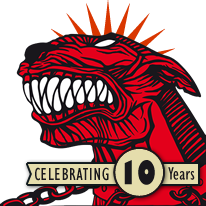Launching IN A SUSPECT UNIVERSE

This week we’re launching Albert Wendland’s IN A SUSPECT UNIVERSE, the prequel to THE MAN WHO LOVE ALIEN LANDSCAPES. Both books tempt you to travel to exotic, far-flung places to learn about alien cultures and both feature the intrepid explorer, Mykol Ranglen.
On this page we’ll be doing a round up of all the blog posts to do with IN A SUSPECT UNIVERSE and featuring some alien landscapes and interstellar artwork. Wendland has probed many complex subjects to do with both the story itself and the process of creating it.
Order IN A SUSPECT UNIVERSE from Amazon or from us
Order THE MAN WHO LOVED ALIEN LANDSCAPES from Amazon or from us

Wendland tells us what’s next for Mykol Ranglen in the post The Up and Coming: After the Novel
“The next book in the Mykol Ranglen series is a collection of poetry supposedly written by Ranglen himself, the notebook of poems referred to in the current novel and occasionally even quoted. That notebook will comprise the third book in the series, and it will be called Temporary Planets for Transitory Days: Poems by Mykol Ranglen.”
Read the full post.
“…an engrossing and ever-expanding world full of both breathtaking beauty and cosmic horror. In A Suspect Universe is sure to please not only fans of his earlier work but any general sf reader looking to indulge in their sense of wonder.” —Booklist

“Working with the psychological implications of identity, transformation, and perception, Wendland tangles up the characters and worlds in loops of time and space….The resolution of his emotional and intellectual dilemmas of dealing with Alchera and the Airafane gives a solid sense of closure that new and returning readers appreciate.”—Publishers Weekly

In the blog post A Different but Useful Format Wendland talks about the structure of this book, how it differs from the first and why
“The story permitted me to take Ranglen to places he had never been before, to have him deal with emotions that the standard mystery-plot, the structure for the first novel, could not let me show. Ranglen experiences here quite a range of feelings—hope, despair, longing, regret, desire, heartbreak, guilt, tragedy, and a final reconciling serenity. He becomes what he is in the course of this story, the Ranglen we know from the first book.”
Read the full post.

Wendland has used poetry in a unique way in this book which he describes in his post The Poet and his Poetry
“None of them are given entirely—only fragments—but they reveal parts of Ranglen’s character that people in the story get to see only through the poems. Ranglen, as in the previous book, is still not too talkative or revealing of his past. So the poems act as revelations of character, and a means of weaving even more mystery into the story.”
Read the full post.

The Elevator Pitch, the Blurb, the Descriptions
Wendland walks us through the often painful process of distilling a novel down to one line or a few paragraphs using IN A SUSPECT UNIVERSE as an example.
Read the full post.

The author talks about his inspiration in Why I Wrote This Novel
“This was getting interesting. I could reveal secrets yet maintain them, show someone’s past but explain his future, tell of events no one knew about but create the beginnings for stories still to come—revelations behind reticence, why we are the way we are, digging into dirt, cuddling up to the reader and whispering, ‘Let me tell you a secret.'”
Read the full post.
The author describes the notion of Deep Story
“And somewhere while writing In a Suspect Universe, I realized that the story of Mykol Ranglen is part of a bigger story, a ‘Deep Story’—the phrase is even used in the book. The story’s incidents do get resolved; the conclusion pulls the novel’s incidents together (and I confess I love the ending). But I realized, while working the story, that more is going on, that a whole underside lurks beneath.”
Read the full post.
Prequel or Sequel? Wendland explains how the two books inform each other
“What if neither book is dependent on each other, but after reading the second story a reader gets a clearer understanding of things in the first story? So isn’t that the classic definition of a “sequel”?—that it adds to and clarifies (through an indirect way) what happened in the first book?”
Read the full post.
Wendland reading from THE MAN WHO LOVED ALIEN LANDSCAPES

